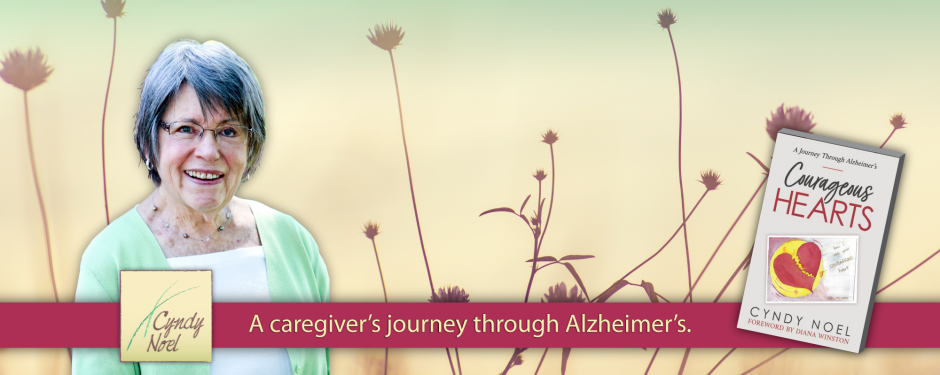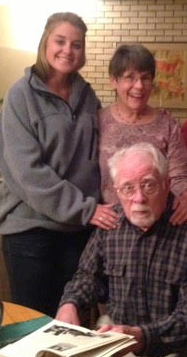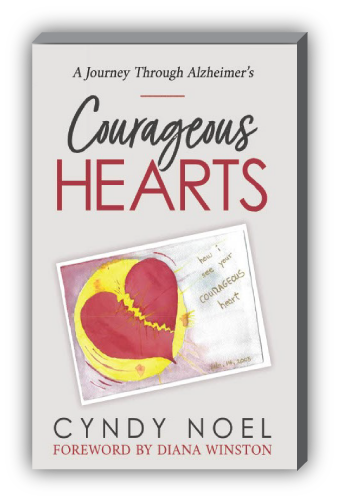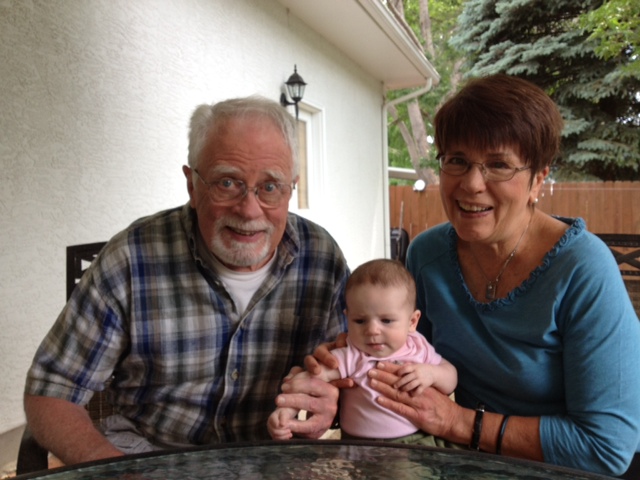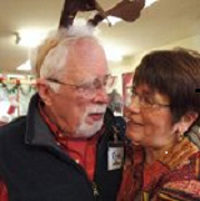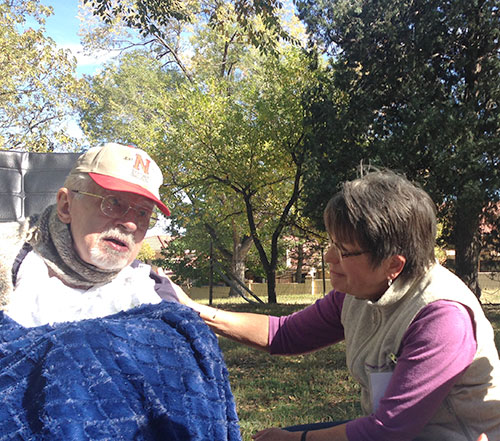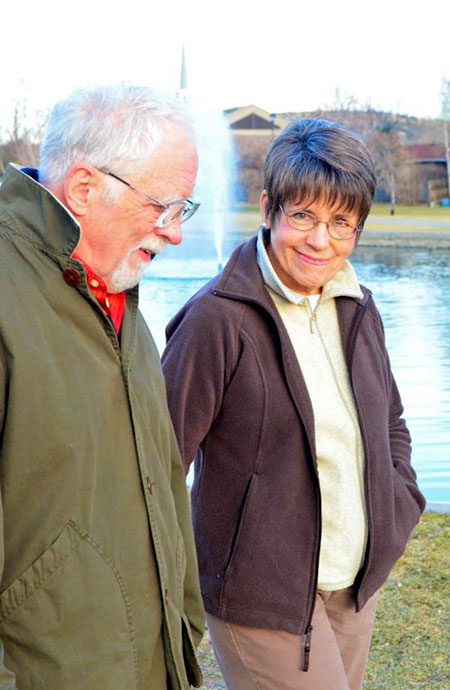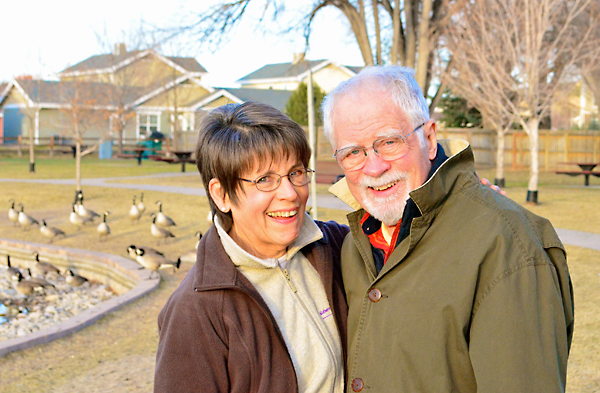For everything I faced in life, I always thought I could plan ahead and figure things out so I’d know what to do… until Ron got Alzheimer’s.
That was a big wake-up call! I took classes to learn about the disease and was slowly learning about the skills that were needed for caregiving, but knowing how to handle the crazy things that occurred, often put me on the spot.
For instance, there was the night Ron got up and went to the bathroom while I was still asleep. I woke up and saw he wasn’t in his bed and panicked. When I went out the bedroom door, I saw him in the bathroom across the hall. I nicely invited him to come back to bed but he wouldn’t budge! I held out my hand, but he didn’t take it. I jumped on the floor to prove it was safe. Nothing I did convinced him that it was safe to walk there.
Thankfully I had learned in the classes at the Alzheimer’s Association, that they sometimes see dark areas on the floor as a hole. But what to do? Though I certainly hadn’t learned about this in the class, suddenly I found myself singing “Tiptoe through the Tulips” by Tiny Tim. I took Ron’s hand and invited him to join me, imagining that there were tulips on the floor. It worked!!

And that wasn’t the only time that I resorted to something kind of crazy in the spur of the moment to get his cooperation or to make my job easier.
I began to see that when I could let go of how I thought it “should” be and pay attention in the moment, I became aware of something that would be helpful… whether an action such as what I described, or knowing where to get information and ask someone for what I needed.
Learning that it was okay not to know, was a big step for me. As I wrote in Courageous Hearts…
When I could get out of the way, stop trying to figure everything out, and not worry so much, I could be more present to what was actually occurring. Then, I could trust the process to show me what to do. The solutions were not so much a result of planning and doing, but of being present in the moment.
I am very grateful for the many helpful ways of being that I learned while caring for Ron, and continue to use them to navigate my life. Trusting the process and letting life show me was a big one. That includes making it up on the spot — even when it seems silly!
